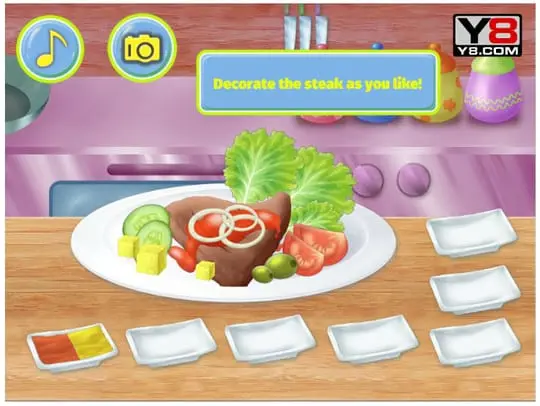Contents
The child does not want to eat. A common problem. Parents who have to solve it have long been divided into two camps: some force the child to eat according to the schedule, others never force it. But both sides want to solve the problem globally, namely, to form a healthy appetite in their baby. Is it possible? Quite!
Three Important Facts about Appetite that Every Parent Should Know
Before you start a program to improve your appetite, be sure to remember:
- Unwillingness to eat may be associated with the disease. First of all, check all the health indicators, and then start active actions. If the child is ill, you will not only not form any appetite in him, but also miss the time.
- A healthy appetite is not always a great appetite. There are people who just don’t eat enough, and that’s fine. Perhaps your child is one of them. Talk to your doctor, take tests, make sure that your baby has enough vitamins and minerals, and do not insist on a three-course meal.
- Overfeeding is just as harmful as malnutrition. And the consequences are not necessarily obesity. These are neuroses, and eating disorders (anorexia and bulimia), and just the rejection of some individual products.
Remember that in matters of nutrition, it is very easy to harm, so be as careful as possible about what you do, and regularly communicate with doctors.
The main rules of feeding

The rules of feeding are actually not so much. One of them, most importantly, is as follows: “Never force the child to eat.” It is the insistent “until you eat, you will not leave the table” and other ultimatums that form the rejection of food in the baby. With proper perseverance, you will achieve the opposite result: even if the child wants to eat, he will eat without desire, because he has only negative associations with food.
The next rule is to trust your child in terms of food. Most children, if their tastes are not already spoiled by burgers and soda, know how much food they need and what kind. The baby has no problems with weight (within the normal range, even at the lower limit), no problems with mobility (runs, plays, is not apathetic), no problems with the chair (regular, normal)? So you have nothing to worry about. If desired, you can take tests that will confirm that the body has enough vitamins and minerals.
Another recommendation is that children with poor nutrition should eat according to a schedule. Of course, it is difficult to reconcile this with the requirement never to force you to eat. But anything is possible. To go out on a meal schedule, regularly call your child at the right time to eat. Let him wash his hands, sit down at the table, look at the food offered, taste it. You don’t need to eat it, persuade them to try a spoon, and that’s it. If you tried and refused, give water or tea, fruit. Let go to continue playing. Over time, the child will form the habit of sitting down at the table at the same time every day and eating something. With the habit, the appetite will also appear.
Another important point is the lack of snacks between meals. The first time, when the child does not eat at the right time, without snacks is unlikely to do. But you need to reduce their number and choose those that do not stifle the appetite, but kindle it. These are apples, homemade crackers, nuts, dried fruits.
Forming an interest in food

The main reason that a child does not want to eat is a lack of interest in food. Despite the fact that food is life, your baby does not clearly understand this. For him, the time of power-the moment when he was torn from an interesting game. But you can change that.
First of all, cooking games will help you. You can play at home with children’s or even real products (fruits and vegetables), or you can play at the computer on special flash drives, like here. Choose the app where the food you want your child to try is prepared. For example, a steak or an omelet. And play! Having prepared such a dish in the game, your kid will probably want to try it. And even if he doesn’t like it, you can always make another one.
And do not forget to offer your child different products. Remember that the more different dishes the kid tries, the better he will be able to navigate them and the higher your chances of finding something that he will like. And eating with desire is the key to a good appetite and good mood!









